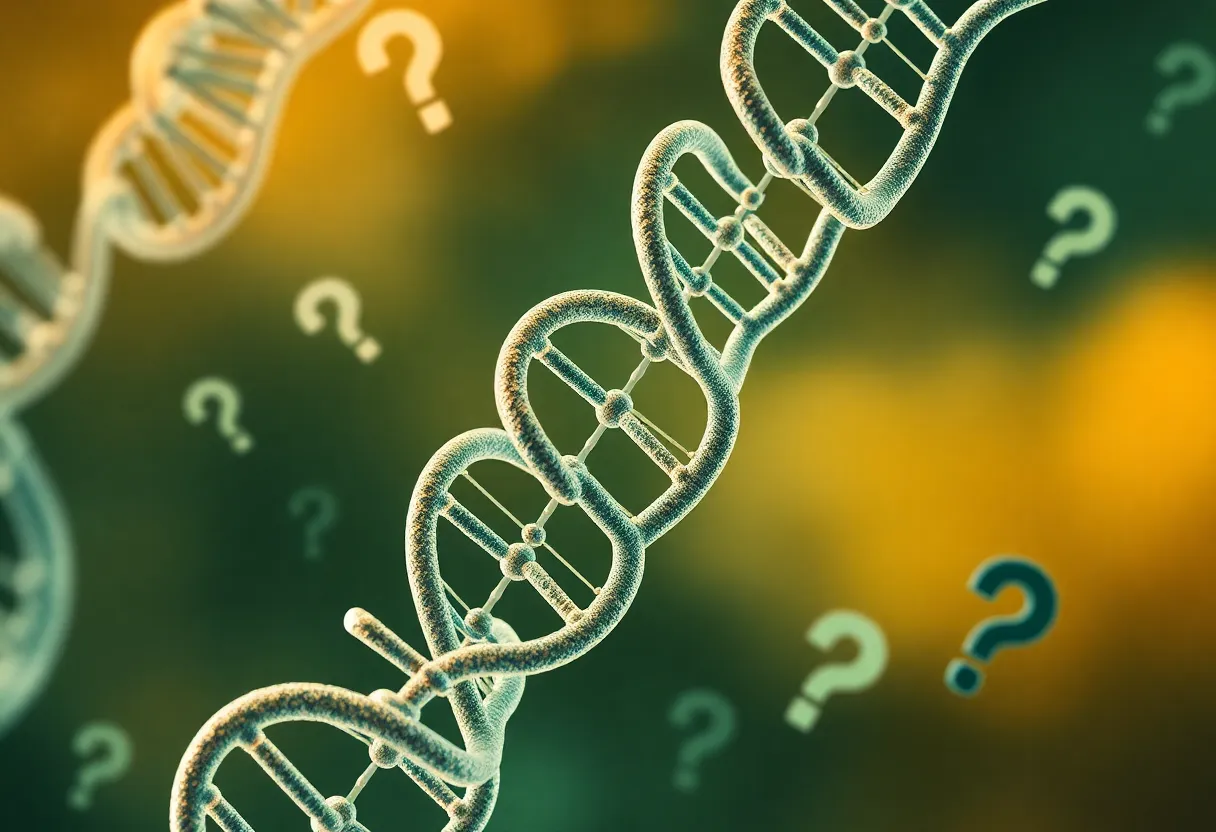News Summary
The U.S. Department of Homeland Security has collected DNA samples from nearly 2,000 citizens, including minors, raising concerns over legality and privacy. Critics argue this practice violates Fourth Amendment rights, especially since many samples were taken without formal charges. The lack of regulatory oversight and transparency in these actions has led to urgent calls for reform, questioning the balance between national security and individual rights. The implications of retaining sensitive DNA data in national databases further highlight the need for a reevaluation of current policies.
DHS’s Controversial DNA Collection Practices Under Scrutiny
Did you know that between 2020 and 2024, the US Department of Homeland Security (DHS) collected DNA samples from nearly 2,000 US citizens? What’s more, some of those individuals were only 14 years old! This eyebrow-raising practice has ignited a flurry of conversations about legality, privacy, and civil liberties.
A Closer Look at the Numbers
To put things into perspective, approximately 865 citizens had their DNA taken without formal federal charges. That means their cases never went through an independent review by a judge, raising red flags about the oversight—or lack thereof—in these circumstances. The DHS submitted these DNA samples to the FBI’s Combined DNA Index System (CODIS), a national database used primarily for law enforcement. But why were these samples even taken in the first place?
DNA Collection for Minor Infractions
Some of the individuals from whom DNA was taken were detained for minor civil infractions, like not declaring items at customs. This means that people who haven’t committed serious crimes could end up with their DNA sitting in a national database. Alarmingly, an estimated 95 of those individuals were minors, with some as young as just four years old.
Questions of Legality and Oversight
The practice stands on wobbly legal ground. Critics argue that it violates the Fourth Amendment rights against unreasonable searches and seizures. The absence of regulatory oversight in this DNA collection is making folks uneasy. A recent analysis revealed that neither the DHS nor Customs and Border Protection (CBP) have sufficient systems in place to ensure that collecting an individual’s DNA doesn’t breach privacy laws. This leads to serious questions about whether the DNA was even collected legally.
Calls for Oversight and Reform
The implications of this DNA collection trend cannot be overstated. Critics are describing these practices as a “flagrant and alarming abuse of power.” The lasting retention of DNA samples in CODIS can lead to potential future misuse of highly sensitive personal data. Moreover, the current practices are seen as a larger push for mass DNA collection, which has gained traction since a rule change in 2020; this change made it easier for the DHS to gather DNA from noncitizens.
Life as Usual After DNA Collection
One particularly concerning aspect is that individuals whose DNA is collected often do not receive notification about their participation in this program. This lack of transparency leaves citizens questioning their privacy and rights. Furthermore, there are reportedly no procedures in place to check, revisit, or even remove DNA profiles when the legality of their collection comes into question.
Time for a Change?
The findings surrounding the DHS’s DNA collection practices have sparked urgent calls for increased oversight and regulation. Citizens and advocacy groups alike are beginning to demand a reevaluation of how DNA is collected and retained, especially when so many of those affected are young people or those without criminal histories.
As this conversation continues, it’s clear that the balance between security and individual rights needs to be addressed. With the advancements in technology and the increasing complexity of law enforcement tactics, now is the time for citizens to stay informed and proactive about their privacy rights. With impending regulatory changes and potential reforms on the horizon, keeping a watchful eye on these practices may lead to a healthier respect for civil liberties in the future.
Deeper Dive: News & Info About This Topic

Author: STAFF HERE PHILADELPHIA WRITER
The PHILADELPHIA STAFF WRITER represents the experienced team at HEREPhiladelphia.com, your go-to source for actionable local news and information in Philadelphia, Philadelphia County, and beyond. Specializing in "news you can use," we cover essential topics like product reviews for personal and business needs, local business directories, politics, real estate trends, neighborhood insights, and state news affecting the area—with deep expertise drawn from years of dedicated reporting and strong community input, including local press releases and business updates. We deliver top reporting on high-value events such as Mummers Parade, Philadelphia Flower Show, and Thanksgiving Day Parade. Our coverage extends to key organizations like the Greater Philadelphia Chamber of Commerce and United Way of Greater Philadelphia, plus leading businesses in telecommunications, food services, and healthcare that power the local economy such as Comcast, Aramark, and Children's Hospital of Philadelphia. As part of the broader HERE network, we provide comprehensive, credible insights into Pennsylvania's dynamic landscape.





